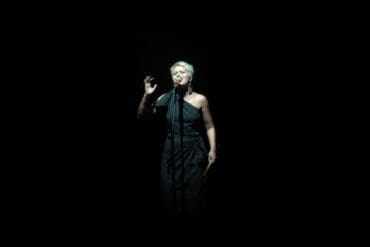“Being In Time”: China, Place Memory & Pedagogy – From Xinjiang To Shanghai
Artist’s Memo
CONTEXT
Being in Time is a 35 min auto-ethnographic film, the first half of a two-part digital feature. It explores foreign EFL teacher identity construct dialectics in contemporary China, qualified by China/West geo-political tensions. It is an experimental pilot to an ongoing, episodic series within a longitudinal auto-ethnographic trans-media parent project. This parent project relates my lived experience as an EFL teacher in China’s language education system. I worked within this system in both the public, government-run sector (secondary education in Xinjiang [XUAR] prior to tertiary pedagogic practice in Shandong and Shanghai) and the private, corporate driven EdTech sector (in Shanghai). The film was completed during “zero-Covid” conditions in China from 2020/02 to 2022/12. Second part production was thereafter initiated in tandem with my current tertiary level teaching of Inter-Cultural Communication [IC]. Chronicling this ongoing process (with blog) is the parent project website at https://www.robertcettl.com/
‘Being in Time is a 35 min auto-ethnographic film, the first half of a two-part digital feature. It explores foreign EFL teacher identity construct dialectics in contemporary China, qualified by China/West geo-political tensions.
FILM-MAKING METHODOLOGY
Being in Time is an evocative montage over eight successive vignettes. It uses video and sound collage, non-narrative transitioning, text rather than voice over narration, and trilingual subtitles. It mixes extracts / samples from found digital artefacts sourced during concurrent Internet browsing with selections from a personal video database accumulated over 10 years. In doing so, the film renders the experiential interior psychodrama of being in China and unable to return to (my home country) Australia to care for my dying father. It is a narrativized stream of consciousness association of place and reflective memory. Rendering the consequent transformational process of ongoing identity (re-)construction is through split-screen POV to a fluid diegetic and non-diegetic soundtrack mix. It finally coalesces in personal, positional relation to current geo-political events. In that: auto-ethnography offered a logical methodological choice for the film, using myself as autobiographical subject for trans-cultural reflection.
It is an experimental pilot to an ongoing, episodic series within a longitudinal auto-ethnographic trans-media parent project. This parent project relates my lived experience as an EFL teacher in China’s language education system.
OBJECTIVE
Being in Time stylistically owes to a film legacy. Comprising this are 1) the “home movie” avant-garde of Jonas Mekas; 2) the aestheticism of Bruce Connor, Chris Marker, Kenneth Anger and Stan Brakhage; 3) the observational cinema tropes of McDougall and Minh-Ha; and 4) the YouTube “mashup” video as individualized cultural interrogation / appropriation. Cumulatively, these comprise a basis for auto-ethnographic film as post-modern genre. Situating this in evocation of my lived experience was, however, for potential tertiary action research use, Specifically, to delineate montagist templates for selective multimedia AV scaffolding in my teaching of auto-ethnography to Chinese EFL-IC students (sophomores). In my prior pedagogic practice during China’s zero-Covid “emergency response” period, I action researched this use of auto-ethnography in IC pedagogic practice, concurrent research into which at Shanghai International Studies University (Chi, Zhang & Kulich, 2022) essentially validated the methodology’s place in Chinese EFL literature: in relation to “cultural stories”.
In doing so, the film renders the experiential interior psychodrama of being in China and unable to return to (my home country) Australia to care for my dying father.
REFLECTION
In retrospect: the first part of Being in Time is a transitional work rendering my late-career EFL pedagogic professionalism (in Shandong and Shanghai). It was triggered by reflection on my formative pedagogic practice a decade earlier (in XUAR: selected footage included). Now, I consider it a personal artefact, commencing the trans-media telling of my “cultural story”.
REFERENCE
Chi, R., Zhang, H. & Kulich, S. (2022). A collaborative auto-ethnography of developing a ‘Cultural Stories’ exercise for intercultural teaching in China. Language and Intercultural Communication, 22:5, 519-533, DOI: 10.1080/14708477.2022.2112207 https://doi.org/10.1080/14708477.2022.2112207

Credits
Photo of Shanghai by Enrique for Pixabay
Learn More
New to autoethnography? Visit What Is Autoethnography? How Can I Learn More? to learn about autoethnographic writing and expressive arts. Interested in contributing? Then, view our editorial board’s What Do Editors Look for When Reviewing Evocative Autoethnographic Work?. Accordingly, check out our Submissions page. View Our Team in order to learn about our editorial board. Please see our Work with Us page to learn about volunteering at The AutoEthnographer. Visit Scholarships to learn about our annual student scholarship competition.
Robert Cettl (HBA, GCTESOL, GDIS, MTESOL) is a faculty member in the Department of Foreign Languages at the University of Jinan, Shandong, China. There, he teaches EFL / Inter-Cultural Communication [IC], researching auto-ethnographic methodologies in contemporary Chinese IC pedagogic practice / course design. A former SAR Research Fellow at Australia's National Film & Sound Archive [NFSA] in Canberra, his film non-fiction scholarship is published in the USA by McFarland & Co. Inc. (Serial Killer Cinema, Terrorism in American Film) and Bloomsbury Academic (in the anthology Murders & Acquisitions). His writing on representations of disability in Australian film was published online in Australian journal Overland. https://www.robertcettl.com/









